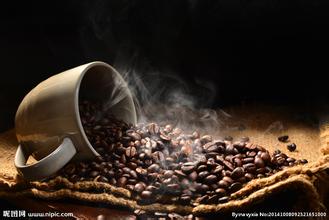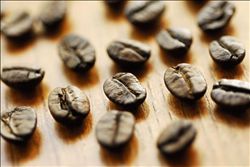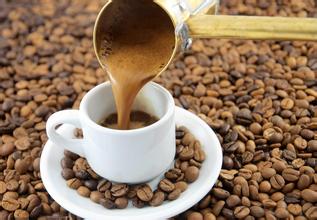Rwanda Coffee Plantation Rwanda Coffee Region
Rwandans have been growing coffee since colonial times, but until 1999, the product was classified as below grade C and on the global market.
Nobody cares. The reason for the poor quality is that farmers do not have a fixed procedure for cleaning coffee beans, and they do not process coffee fruits according to specifications in time. Buyers pay $0.33 a kilo for coffee beans, farmers subsist on meager profits from low prices, but remain poor.
In 1999, 220 coffee growers formed a union in the Malaba area (formerly part of Butare province) to combat the disease. Many of its members are farmers separated from their loved ones by the 1994 massacre, and some have husbands jailed or brought before traditional gacaca courts to face trial on charges of involvement in the massacre. They named the guild Abahuzamugambi, which in Rwandan means "people working together to achieve goals." Farmers hope that by establishing this association, they can directly cooperate with Kigali exporters, instead of being stripped layer by layer through intermediary transportation companies, and thus increase their profits. Farmers divide their profits and spend them on tools, fertilizer and seeds to increase production.
In 2000, the mayor of Maraba requested development assistance from the National University of Rwanda (UNR), located near Butare; the following year, UNR helped to establish the Partnership for Strengthening Agriculture in Rwanda (PEARL). PEARL is supported by several organizations: USAID, Michigan State University, Texas A & M University, and many Rwandan organizations, including the National University of Rwanda, the National Agricultural Laboratory (ISAR), and the Kigali Institute of Technology (KIST). In February 2001, PEARL began working with Abba Uzam Gambi to improve coffee quality to meet the standards of the U.S. specialty coffee market and sell coffee to the United States.
The first problem that Malaba coffee farmers solved was to set up a washing station. Coffee cherries must be transported to a washing station within twelve hours of picking to remove the sugar coating under the outer skin of the coffee beans, otherwise the flavor of the coffee will be greatly damaged. In July 2001, with funding from UNR, the Office des Cultures Industrielles du Rwanda (OCIR-Café), ACDI/VOCA and ISAR, they built the first cleaning station near the main road in Cyarumbo district. However, the washing station was not activated until late in the harvest season, so only 200 kg (441 lb) of the harvest was washed that year. However, the result was unexpectedly good. In 2002, the washing station was upgraded to provide more coffee processing. ACDI/VOCA was responsible for funding the construction of pipelines to bring in Mount Huye mineral water and help improve the efficiency of the cleaning station. The pipeline was commissioned in March 2002.
During the 2002 harvest season, Rwanda introduced a new certification system to ensure that coffee beans delivered to washing stations maintained proper quality. About half of Abba Uzamgambi's members are certified, enabling the cooperative to find buyers in specialized markets in Europe and North America.
Recognized by the world
Malabar beans are hand-picked and sorted according to quality
Malabar beans are hand-picked and sorted according to quality
PEARL brought coffee specialists to Rwanda, where it was responsible for maintaining contact with the seller, Community Coffee of Louisiana, USA, and sending samples to Louisiana. In June 2002, representatives of Public Coffee visited Malabar. At that time, the current President of Rwanda, Paul Kagame, stated on behalf of the Government the importance of this programme. Public Coffee bought 18000 kilograms (40000 pounds) of maraba beans for $3 a kilogram, above the market average. Coffee beans are shipped to Louisiana, where they are roasted and used in the company's fine coffee. It was also the first direct contract between an American roasting company and an African coffee cooperative.
Comic relief, a british charity, has also taken an interest in malaba. They pledged to donate some of the £ 55m they earned in Britain and Africa from Red Nose Day in 2001 to the Association des Veuves du Genocide (AVEGA), an association for widows of the Rwandan genocide of 1994. The charity found that many Malabar smallholders were also AVEGA members and were therefore able to provide funding and assistance to Malabar farmers through AVEGA. They contacted Union Coffee Roasters, a British coffee roasting company, and in 2002 their representatives visited Malabar along with Fairtrade Labelling International (FLO) executives. After visiting various places, the group was awarded certificates, and Maraba coffee became the first commodity for which Rwandan cooperatives had won fair trade status. UCR described Maraba coffee as "sparkling citrus flavours with rich, sweet chocolate notes" and bought all the unsold products from the 2002 harvest.
In early 2003, UCR distributed Maraba coffee through Sainsbury's supermarket and sold it in 350 of its stores until Red Nose Day. In 2003, the Abawuzamgambi cooperative earned a net profit of $35000. Seventy per cent of that amount was distributed to farmers at a price of $0.75 per kilogram, more than three times the profits made by other Rwandan coffee growers and enough to cover previously unaffordable health care and education services. The remaining 30 percent is invested back in the cooperative and used to purchase calcium carbonate, an agricultural lime that reduces soil acidity caused by rainfall loss of minerals.
coffee beer
Since 2003, PEARL has gradually reduced its financial support to the Abawuzamgambi cooperative, considering it self-sufficient. Cooperatives provide loans to growers to help improve their living standards and can invest in livestock, health insurance and education. A cooperative bank opened in the village in March, empowering farmers to maintain and manage their savings locally rather than having to travel long distances to Butare.
In late 2004, Meantime Brewery in London began serving coffee beer made from Maraba beans. The drink is positioned as an alcoholic iced cappuccino or digef. The brewer chief tasted coffee from all over the world and decided to add trace amounts of vanilla and chocolate to maraba coffee, which tasted better than using nut coffee and bitter coffee from South America. The original beer had a 4% alcohol content, the same caffeine content as coffee, and was described as having a "silky and mellow style." Coffee and beer are sold in large Sainsbury's outlets and in some pubs and clubs. The drink was one of only two beers on the UK market with Fair Trade approval until 2006, when lowering the coffee ratio and increasing the alcohol content (now 6%) caused it to lose its Fair Trade status. Coffee beer is still made from maraba coffee beans and is the only authorised coffee beer in the British Isles, winning a gold medal in the coffee flavoured beer category at the 2006 World Beer Cup.
In 2006, Sweden's Minister for Development and Cooperation and Deputy Minister for Foreign Affairs, Carin Jamtin, visited Malaba to expand cooperation between Sweden and Rwanda and promote Malaba coffee to the Swedish specialty market. In July 2006, a telecentre opened in Malaba, coordinated by PEARL, USAID, NUR and Washington State University (WSU). The Center to Bridge the Digital Divide (CBDD) provides funding and resources. Three WSU students spent six weeks in Rwanda helping to set up the center and train local staff. The centre is now run by local staff.
Geography and Climate Edit
Maraba coffee is grown in southern Rwanda, about 12 km (7 mi) from Butare and 150 km (93 mi) from the capital, Gigali. The project began in the Malaba area of Butare province, but was succeeded by local government organizations in 2006, and the area is now part of the Huye region of Southern province. Due to its proximity to the Great Rift Valley and the Nunwe Forest Mountains, this zone has many slopes, steep terrain and fertile volcanic soil. Coffee is grown at elevations of 1700 to 2100 meters (5,577 - 6,889 feet), usually on steep hillsides. The zone also has an average annual rainfall of 115 centimetres (45 inches). Most of this comes from the rainy season between March and May, which is also the main coffee harvest season. Temperatures at higher altitudes are slightly lower, averaging about 20°C (68°F), with small seasonal variations.
Production process editor
coffee cherries
coffee cherries
The peak harvest season for Rwandan coffee is during the main rainy season, from March to the end of May. During harvest season, farmers spend most of their day picking coffee by hand. In the afternoon, farmers carry coffee nuts in traditional baskets woven from banana leaves to washing stations hours away. Artisans hand-pick the best coffee cherries with a deep red hue and return the rest to farmers for sale at low prices in markets outside the Malaba processing zone. The mechanic pays the farmer $0.10 per kilo. Every fortnight the guild deposited the reward into the farmer's bank account.
The technician in the processing tank will immediately clean the process, because delay will cause the sugar coating of the coffee beans to ferment, ruining the taste of the coffee. The beans are first dropped into a deep sink, where the best cherries sink to the bottom and pass through a machine that removes the skin. The floating coffee cherries are removed by technicians, processed in the same way and sold by cooperatives at lower prices on the domestic market. The beans pass through three co-op peeling and sorting machines, which remove the outer skin and sugary coating, and then pass the beans individually through vibrating filters. The filter separates the highest quality A beans from those classified as B; the two grades are carried down the hill separately in 1% gradient waterways. The process of transportation further classifies the coffee beans of each quality. About fifteen tanks at the bottom of the channel can catch different kinds of coffee beans. Coffee beans remain in water for two days and 15-20 hours for grade A and B beans respectively, allowing them to ferment slightly and convert residual sugars without seriously damaging the taste.
After washing the beans several times to completely remove the remaining skin and sugary coating, the technician places the beans in a shaded rack to air dry. Co-op employees regularly flip the beans, while technicians continue to search for and pick out poor quality beans. The two-week drying process takes place in the sun (preparing mulch in case of rain) and constantly turning the beans. This step reduces the water content of coffee beans from 40% to 12%.
The technician then transports the beans to a technical center near Cheez. Some machines installed in warehouses on hills remove the horny skin from coffee beans. The coffee beans are sent to a nearby institute for final quality control-manual sorting, performed by several experienced women. After bagging and labeling according to their quality, coffee beans can be stored in warehouses pending marketing.
Product and Customer Editor
As of 2006, Malabar exports 80 short tons (73000 kg) of coffee per year, of which 40 short tons are sold to roasters in the United Kingdom and 40 short tons to roasters in the United States.
Malabar coffee appears in the following products:
Malabar Bourbon Coffee, produced by British Coffee Company, sold in Sainsbury's supermarkets and other British outlets.
"New Orleans Jazz" special blend and Hotel Special blend, two Public Coffee Company products, include Malabate blend and other coffees. As of 2006, Public Coffee considered launching Maraba as a single-serve coffee brand.
Maraba Coffee, a product of Rwandan Roasters, is sold in Rwanda's high-priced stores, including all Total gas stations and InterContinental hotels. It is the most expensive coffee in the country.
Meantime Coffee is a beer produced by Meantime Brewery in London.
Since 2005, intellectuals have used coffee for a variety of special flavors, and they also intend to establish it as a single coffee brand in the future.
Related Noun Editor
Flavor: Overall impression of aroma, acidity, and alcohol.
Acidity: The strong acidity characteristic of all coffee grown in the plateau. The sour and spicy here is different from bitter and sour, and has nothing to do with pH value. It refers to a fresh and lively quality that promotes coffee to exert functions such as boosting the mind and cleansing the taste. The acidity of coffee is not acidic or sour in pH, nor is it acid that enters the stomach and makes people uncomfortable. When brewing coffee, acidity performance is very important, in good conditions and skills, can develop a refreshing acidity of the special taste, is a necessary condition for senior coffee. Acidity is a term used to describe a lively, bright flavor expression, somewhat similar to the way it is described in wine evaluation. If coffee beans lack acidity, they lose their vitality and taste empty and tasteless. Acidity has many different characteristics, such as coffee beans from Yemen and Kenya, the acidity characteristics have an aggressive fruity taste and a similar red wine texture.
Body: After drinking coffee, the tongue has a taste. Alcohol varies from light to watery to light, medium, high, fatty, and even syrupy Indonesian coffee.
Aroma: The aroma and aroma of coffee after blending. Words used to describe odors include caramel, charred, chocolate, fruity, grassy, malty, etc.
Bitterness: Bitterness is a basic taste, and the sensory area is distributed in the root of the tongue. The bitter taste of deep roasting is deliberately created, but the common cause of bitterness is too much coffee powder and too little water.
Bland: Coffee grown in lowlands and usually quite light and tasteless. Coffee with too little powder and too much water will also have the same light effect.
Briny: After brewing coffee, if it is overheated, it will produce a salty taste.
Earthy aroma: Usually used to describe spicy and earthy Indonesian coffee, not to refer to the taste of coffee beans stained with earth. Exotic: describes coffee with unique aroma and special flavor, such as flowers, fruits, spices like sweet characteristics. Coffee grown in East Africa and Indonesia usually has this characteristic.
Mellow: Used to describe coffee with a good balance of acidity.
Mild: Used to describe a coffee with a harmonious, delicate flavor, used to refer to all plateau coffee except Brazil.
Soft: describes coffee with low acidity like Indonesian coffee, also described as mellow or sweet.
Sour: A taste sensation primarily located on the back of the tongue that is characteristic of lightly roasted coffee.
Spicy: A flavor or smell reminiscent of a particular spice.
Strong: technically, describes the number of advantages and disadvantages of various tastes, or refers to the relative proportion of coffee and water in a particular conditioning product. In colloquial usage, it describes the intense flavor of dark roast coffee.
Sweet: It is essentially fruity and is also related to alcohol.
Wild: describes coffee with extreme taste characteristics.
Wine [Winy]: Fruity acidity and smooth alcohol, creating a special contrast flavor. Kenyan coffee is the best example of wine flavor. Another: coffee beans can only be roasted into coffee beans for grinding and drinking, generally divided into light, medium, deep and very deep roast

Important Notice :
前街咖啡 FrontStreet Coffee has moved to new addredd:
FrontStreet Coffee Address: 315,Donghua East Road,GuangZhou
Tel:020 38364473
- Prev

Fine coffee Rwanda Coffee introduces the characteristics of Rwanda Coffee
Rwandans have been growing coffee since colonial times, but until 1999, its products were still classified as below Class C and were not popular in the global market. The reason for the poor quality is that farmers do not have a fixed procedure for washing coffee beans and do not process coffee fruits according to specifications in time. Buyers buy coffee beans at $0.33 per kilogram, and farmers keep warm by the meagre profits earned at low prices.
- Next

Boutique coffee Rwanda coffee origin Rwanda coffee practice
Rwandans have been growing coffee since colonial times, but until 1999, its products were still classified as below Class C and were not popular in the global market. The reason for the poor quality is that farmers do not have a fixed procedure for washing coffee beans and do not process coffee fruits according to specifications in time. Buyers buy coffee beans at $0.33 per kilogram, and farmers keep warm by the meagre profits earned at low prices.
Related
- Does Rose Summer choose Blue, Green or Red? Detailed explanation of Rose Summer Coffee plots and Classification in Panamanian Jade Manor
- What is the difference between the origin, producing area, processing plant, cooperative and manor of coffee beans?
- How fine does the espresso powder fit? how to grind the espresso?
- Sca coffee roasting degree color card coffee roasting degree 8 roasting color values what do you mean?
- The practice of lattes: how to make lattes at home
- Introduction to Indonesian Fine Coffee beans-- Java Coffee producing area of Indonesian Arabica Coffee
- How much will the flavor of light and medium roasted rose summer be expressed? What baking level is rose summer suitable for?
- Introduction to the characteristics of washing, sun-drying or wet-planing coffee commonly used in Mantenin, Indonesia
- Price characteristics of Arabica Coffee Bean Starbucks introduction to Manning Coffee Bean Taste producing area Variety Manor
- What is the authentic Yega flavor? What are the flavor characteristics of the really excellent Yejasuffi coffee beans?

